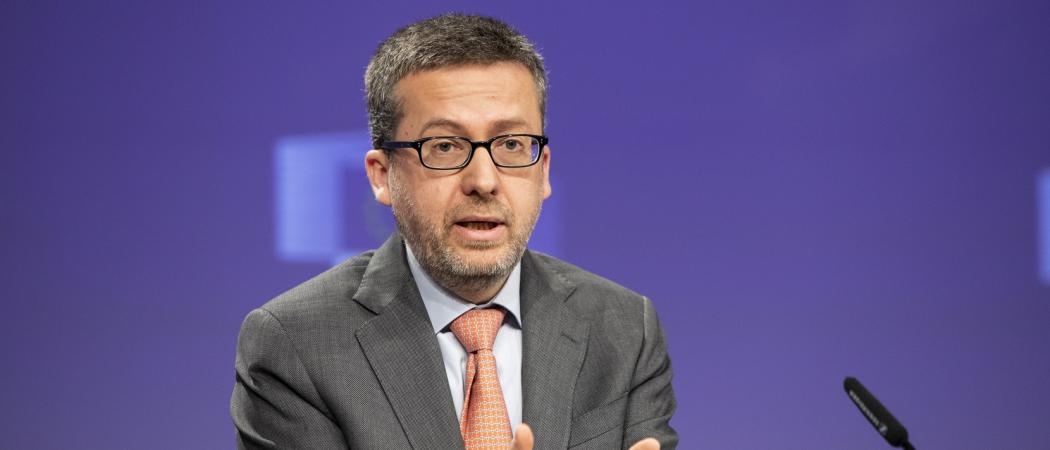Science diplomacy can work when other kinds of politics and diplomacy have failed, says Carlos Moedas, outgoing commissioner for research and innovation

Photo: European Commission
Scientists have always made natural diplomats. Benjamin Franklin, the celebrated polymath and politician quickly became an enemy of the UK when he signed the declaration of independence in the late 18th century. In spite of increasing tensions reaching from one side of the Atlantic to another, Franklin remained in close contact with the British naturalist Joseph Banks, because, as Banks put it, “The science of two nations may be at peace while their politics are at war”.
Almost two hundred and fifty years later, that same spirit continues.
At the height of the Cold War, the US and the then USSR were the greatest of adversaries. From chess to proxy wars, cooperation was non-existent at best, considered sedition at worst.
But by the 1980s they had no less than ten agreements on scientific cooperation with hundreds of scientists taking part in exchanges between both nations.
As history shows, diplomacy through science presents a matchless opportunity. It provides a way to address the political, demographic and environmental challenges of the age through the expression of scientific endeavour. Because science is a universal language that deepens collaboration between nations.
It is an approach that has worked across the centuries – as in the case of Franklin and Banks. And although it has previously been informal, science diplomacy has now become official policy in the EU context, and is fast gaining traction at a broader international level.
One of the best examples I have seen of the power of science diplomacy is the SESAME project, the highly advanced particle accelerator located in Jordan. SESAME is an extraordinary project without precedent in the region, and an exemplar of what science diplomacy can achieve.
Some SESAME partner countries have territorial disputes, some have fought wars. And yet, here they are, talking, investing, building and working together. Like the ambitious architects of the European project following the second world war, by uniting around a shared project, the SESAME partner countries have built a haven of peace and science in the midst of a region riven by past and present conflicts. It is the home of science diplomacy in the Middle East, and as a project, it is as valuable for its contribution to stability, investment and employment in the region as it is to knowledge and science.
Building bridges through science
As with SESAME, the same great potential is plain to see in numerous places at both an international and regional level. One case in point is the Southern Eastern European International Institute for Sustainable Technologies (SEEIIST), located in Montenegro.
People may think they know about the Western Balkans region because they know its history. However, what people think they know about the Western Balkans is merely one chapter. SEEIIST is part of turning the page.
This international scientific research facility is a great example of where a region once scarred by cross-border conflict is building bridges through science. Creating a place where scientists from all over the world can come to exchange knowledge, ideas and new perspectives. And it’s thanks to the vision and determination of the Montenegro Minister for Science, Sanja Damjanović, as well as her counterparts across the region, among others, who ensured the support and the willingness to cooperate through science, and ensure the project came to life.
I am very proud of the European support we have provided to the SEEIIST project over the years through Horizon 2020. With the new geopolitical commission of president-elect Ursula von der Leyen due to take office soon, I am confident that the European Commission will continue to see great value in this type of science diplomacy.
Today’s conflicts have become increasingly complex, so too have our common challenges. It is therefore not only logical, but also necessary, to cut through this increased complexity and to return to the tools of diplomacy that have guided us across the ages.
In the words of the French scientist Louis Pasteur, “Science knows no country, because knowledge belongs to humanity, and is the torch which illuminates the world.” The torch that brightens a doorway to cooperation and communication that is never closed. One that lights the way for a brighter future where other kinds of politics and diplomacy have failed - and where peace and prosperity are not the by-products of scientific cooperation, but the end goal.
Carlos Moedas
European Commissioner for Research, Science and Innovation





 A unique international forum for public research organisations and companies to connect their external engagement with strategic interests around their R&D system.
A unique international forum for public research organisations and companies to connect their external engagement with strategic interests around their R&D system.